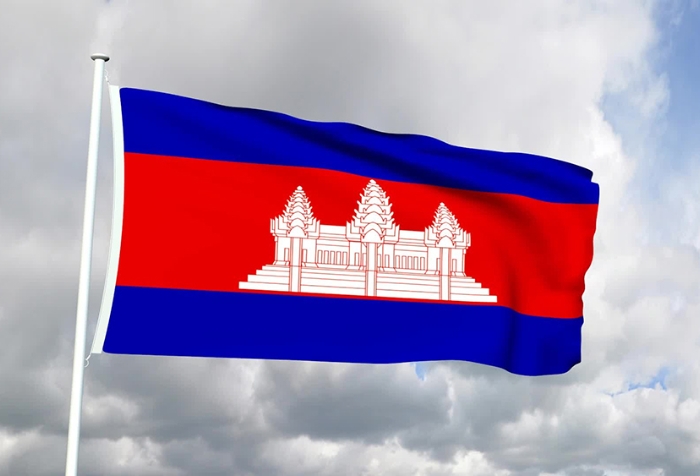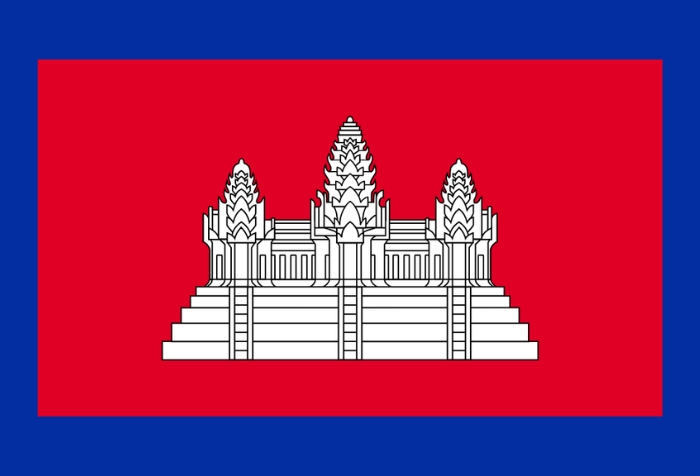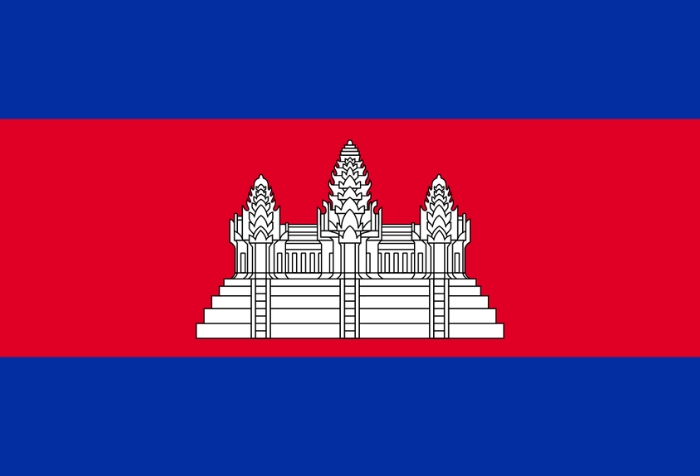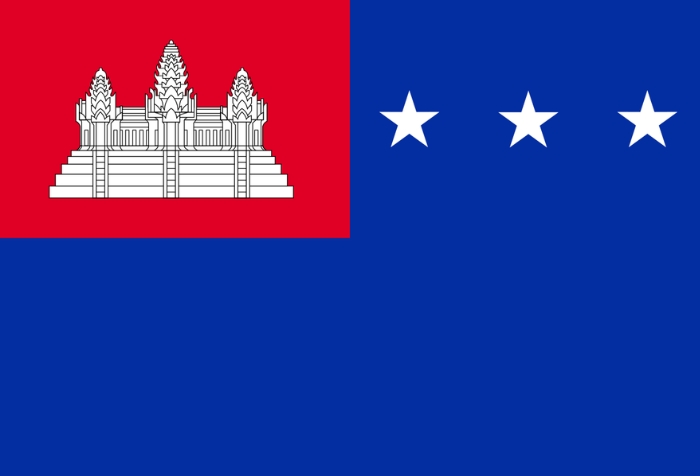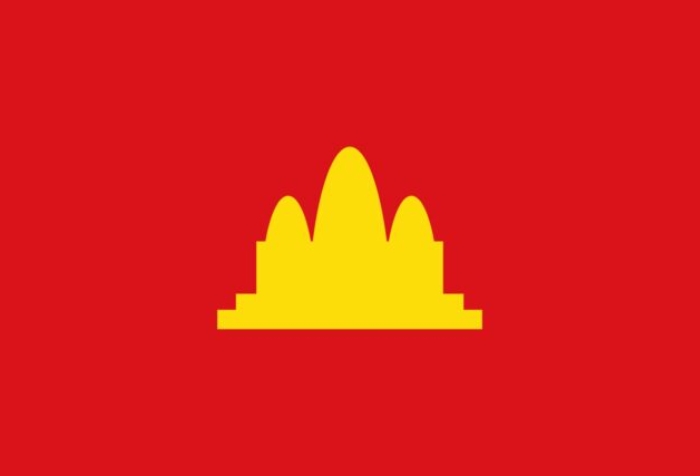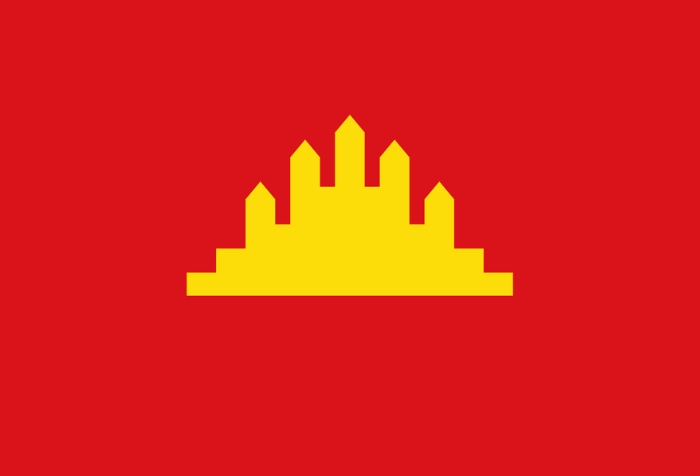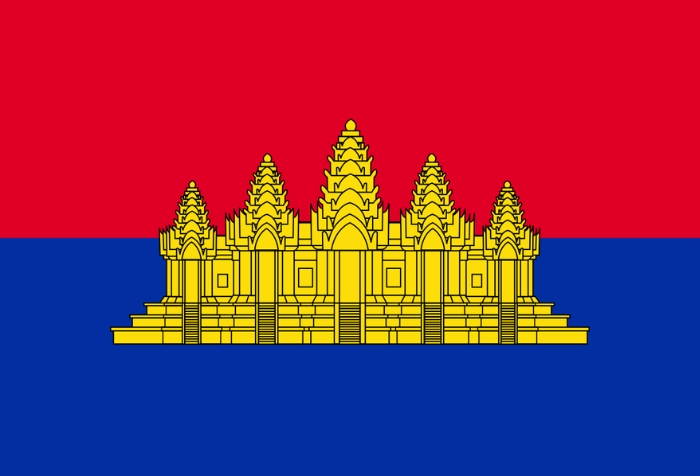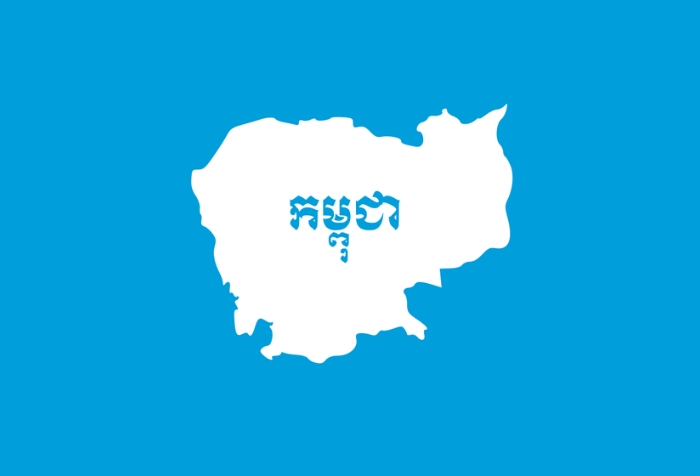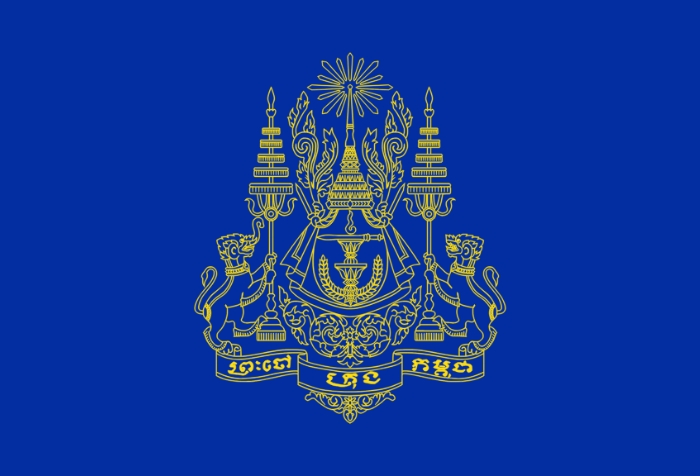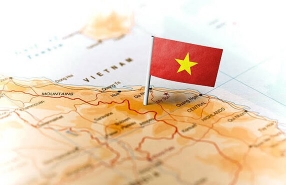Travelling to Cambodia offers the opportunity to explore a country rich in history and culture, and understanding the Cambodia flag can deepen this experience. The flag is more than just a national symbol; it embodies the country’s identity and heritage. Curious about the meaning behind the flag? Join Autour Asia to discover more about the cambodia national flag. This knowledge will enrich your journey, revealing layers of meaning that connect you to Cambodia’s vibrant traditions and captivating stories.
1. Introduction about Cambodia flag
Cambodia, a land renowned for its ancient temples, friendliness, and unique architecture, captivates visitors from all over the world with its natural beauty, rich culture, and legendary hospitality. Among the many symbols that embody the essence of this kingdom, the Cambodian flag holds a prominent place. This flag, with its distinctive design, reflects the country's deep historical roots and cultural identity. Featuring 3 colours: blue, red, white and prominently displaying the iconic Angkor Wat temple at its centre, the flag highlights Cambodia's architectural wonders and its enduring legacy as a hub of spiritual and historical significance. Notably, the flag of Cambodia is the only flag in the world to feature an architectural building, the Angkor Wat.
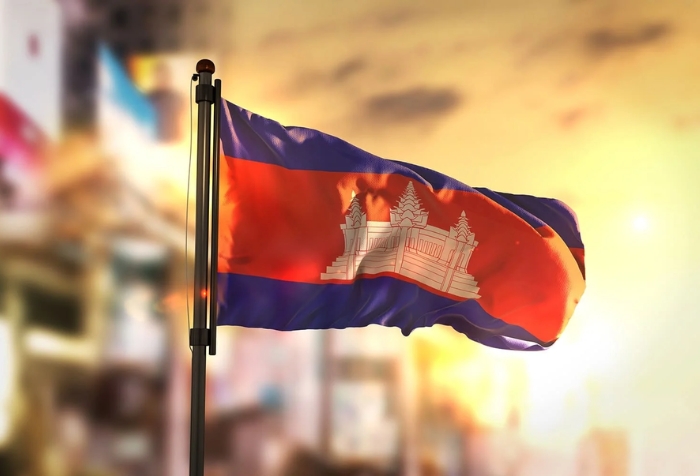
Adopted in its current form in 1993, after a general election returned the country to a monarchy, through its many changes and historical periods, Cambodia's flag has always retained a powerful symbol of national pride and unity, reflecting the resilience and heritage of the Cambodian people.
2. The meaning of Cambodia flag
The Cambodia flag carries many profound meanings, reflecting the history, culture and spirit of the country. Here are the meanings of each colour and element on the flag:
About colour:
Blue: symbol of freedom, unity and brotherhood in the royal family and monarchy of Cambodia, an important and respected part of Cambodian culture.
Red: Represents the nation and the courage of the Cambodian people.
White: Symbolises purity, peace and Buddhism, the country's main religion.
About Central Symbol - Angkor Wat:
The image of Angkor Wat in the centre of cambodia national flag has special significance. Angkor Wat is one of the most famous religious structures in the world and symbolises the greatness of Khmer architecture. Its presence on the flag emphasises the importance of Buddhism in Cambodia's cultural and religious identity. In addition, Angkor Wat also represents the unity of the Cambodian people and their connection to their ancient heritage and the Khmer empire.
Cambodia's flag, with its colours and symbols, represents the nation's reverence for the monarchy, resilience and rich cultural and religious heritage of the Cambodian people, becoming a powerful symbol of national pride and unity.
3. The evolution of the flag of Cambodia from historical times to present
The
Cambodian flag reveals a captivating tale of the nation's vibrant and dynamic history. Explore the evolution of its designs, each reflecting significant cultural and political shifts from ancient times to the present. Here’s a detailed exploration of this remarkable transformation:
The flag of Cambodia under French protection, with the image of Angkor Wat in white on a red background and blue borders at the top and bottom, marks the collapse of the ancient Khmer Kingdom. The flag also recalls the colours of the French flag, symbolising French influence and protection during this period.
The flag of Japanese-occupied Cambodia, used during World War II from 1942 to 1945, features a red field with a white square in the centre, connected to four smaller white squares at each corner by lines. This design symbolises the temporary Japanese control over Cambodia during the war.
Following World War II and Japanese occupation, Cambodia achieved independence in 1953. During this period, the Angkor Wat flag, which had a slight modification in 1948, was used. This version, closely resembling the current flag, has become a national symbol of the Kingdom of Cambodia.
From 1970 to 1975, the flag of the Lon Nol government (Khmer Republic) displayed a blue background with a red rectangle in the canton, featuring the silhouette of Angkor Wat. Three prominent white stars, representing the nation, state, and Buddhism, were arranged horizontally in the upper corner of the blue field. This Cambodian flag was later used by rebel factions opposing the Vietnamese-supported government of Cambodia.
The flag of Cambodia continued to change as it entered under the Khmer Rouge (Democratic Kampuchea), had a red background, symbolising communism, and featured a gold Angkor Wat instead of stars, hammers, or sickles. It was one of the most distinctive flags in the communist world. The Khmer Rouge continued to use this flag in opposition.
After the Vietnamese invasion of Cambodia in 1979, the Salvation Front seized power and established the People's Republic of Kampuchea. The newly adopted flag featured a plain red background with a central yellow monument resembling the five towers of Angkor Wat.
In 1989, the country was renamed the State of Cambodia, and cambodia national flag was changed to a red-blue horizontal bicolor with a more elaborate yellow depiction of Angkor Wat in the centre.
In 1992, the United Nations assumed control of Cambodia's administration to establish peace in the country. The flag of the UNTAC featured a sky-blue background, typical of the UN, with a white map of Cambodia at the centre and blue text in the middle.
After the United Nations left, Hun Sen's government regained power, reinstating the Kingdom of Cambodia flag. Today, Cambodia's official flag features a horizontal red band flanked by two blue bands, one above and one below.
4. Other important flags in Cambodia
Travel to Cambodia, in addition to the cambodia national flag, this country has several other important flags representing different aspects of the country's heritage and institutions:
- Royal standard of Cambodia flag: is the personal flag of Cambodian King Norodom Sihamoni. It is also considered among the national symbols of Cambodia, featuring a yellow field with the royal arms in the centre.
- Prime Minister's Flag: A blue flag with a white emblem depicting the Prime Minister's office.
- Royal Cambodian Armed Forces Flag: Featuring a deep blue field with the emblem of the Royal Cambodian Armed Forces prominently displayed in the centre, this flag represents the strength and valour of Cambodia's military.
These Cambodian flags not only represent the country's royal authority, military prowess, and political governance but also highlight the regional diversity and historical legacy that make the country unique. Tourists who travel to Cambodia can immerse themselves in a journey through time, discovering the stories and symbols that have shaped this captivating nation. From the grandeur of the royal palaces to the solemnity of military memorials, each flag offers a window into a different aspect of Cambodia's rich cultural tapestry.
The Cambodia flag is much more than just a piece of fabric; it embodies the soul of the nation, with every element of its design holding profound meaning. When travelling to Cambodia, take a moment to pay attention to the cambodia national flag, it could unlock the secrets to understanding the intricate and fascinating history of this enchanting country.
What are some major occasions (events) when Cambodia flag is prominently displayed?
Cambodia's flag is prominently displayed during national holidays such as Independence Day (November 9) and Victory Day (January 7). It is also a key symbol during celebrations, official ceremonies, and international sports events.
Is there a specific protocol for flying the Cambodia flag?
Yes, like many national flags, the Cambodia flag has specific protocols for display. It should be hoisted in a respectful manner, not allowed to touch the ground, and flown at half-mast during periods of national mourning.


